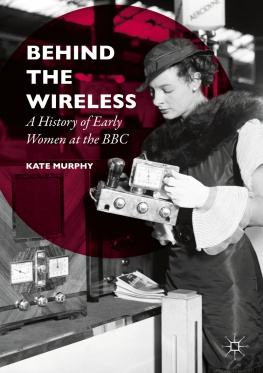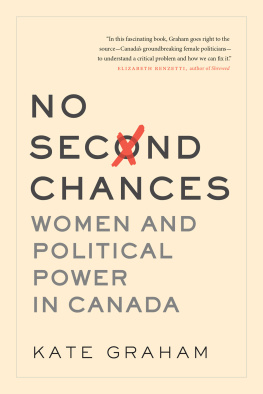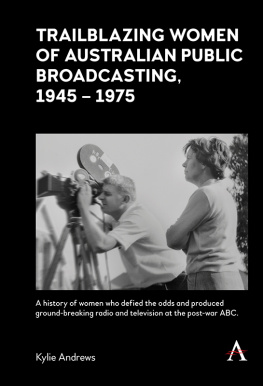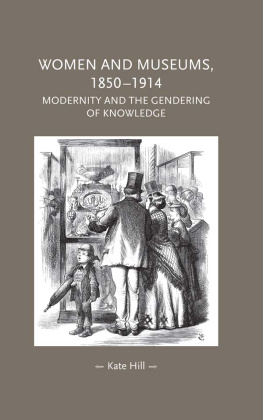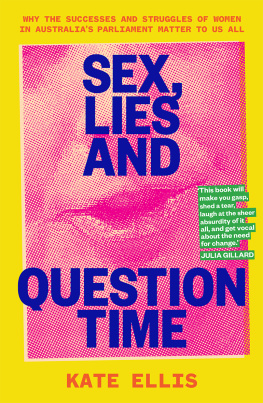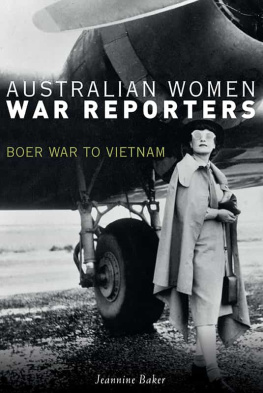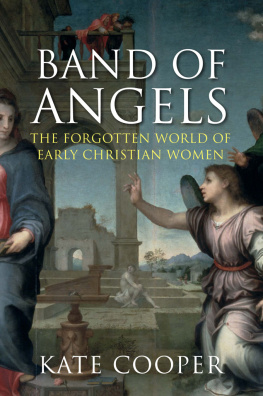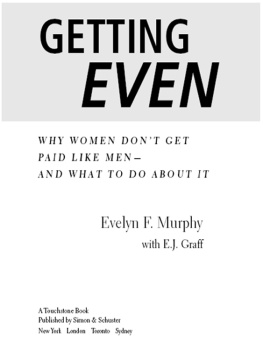1. Introduction
Miss Sprott (of the BBC) takes Lunch in Hull trumpeted the Daily Mail on 31 March 1939.
Ever since I first came across the beguilingly named Elise Sprott in 2002, I have been captivated by her. She was a BBC stalwart. Her first association with the British Broadcasting Company, as it was then called, was in June 1924, when she came before the microphone to give a short talk on Continental Fashions in Food. The following year she was offered a 3.15s a week staff job as an Assistant in the Talks Department, where she would make her mark developing household programmes for women. Moved to the role of Womens Press Representative in 1931, she would spend the rest of her BBC career promoting the Corporation, informing women about its work (as she did in Hull) as well as telling the world about the women who worked for the BBC.
There is much about Miss Sprott that encapsulates women at the BBC in the interwar yearsthe subject of this book. An indomitable woman, she was in the vanguard of those whose lives had been transformed by the First World War. She started her BBC career at Savoy Hill (Head Office until the move to Broadcasting House in 1932), and then worked her way up the ranks to the senior salaried grades commanding by 1939 the generous salary of 600 a year. Without her, it is doubtful this book could have been written, or certainly much of the colour would be gone. It was her intrepidity that ensured, from late 1931, that a constant stream of features and news stories about The Silent Women of the BBC appeared in the British press.
Yet despite Miss Sprotts best efforts to put women in the picture, they have largely been left out of the historiography of the BBC. In fact it was a tantalising paragraph in the second volume of Asa Briggs monumental History of Broadcasting in the UK that whetted my appetite for this project.
The BBC had been established in 1922, an auspicious time for women. The vote had been won in 1918 (or at least the partial vote, for those aged over 30) and the 1919 Sex Disqualification (Removal) Act had enabled entry to most professions. The First World War had changed the landscape in terms of womens employment and the climate of the times was one of new opportunities, particularly for the middle classes. The BBC tapped into this fresh resource. Most of the BBCs female staff were London-based (though not necessarily London-born) and those who worked at Savoy Hill/Broadcasting House are predominately the ones we shall meet in this book. After the First World War, the metropolis became the centre of Britains economic growth and home to countless new industries, including the BBC. The BBC with its central location, good pay and good working conditions, touched by both celebrity and grandeur, was a highly desirable place to be, at least from the mid-1920s once its status was assured. It meant, too, that the BBC could pick and choose female staff.
The BBC also attracted the unconventional. As a contributor to the staff journal Ariel commented, there were more people to the square inch who have had queer jobs at one time and another than there are in any other organisation. It was as she began broadcasting on the BBC that she changed her name from Elsie to Elise, possibly an indication of aspiration.
In their introduction to Women and Work Culture: Britain 18501950 Krista Cowman and Louise Jackson pinpoint social aspiration as one of the meanings of work for women and how this could be viewed also in terms of economic necessity, self-fulfilment, vocation, duty and service, with the definition of skilled or professionalism adding to its status.
As Britains first broadcasting industry, the BBCs unique composition offered the possibility of creative, administrative and technological careers, while its rapid growth meant the potential for increased responsibilities for those with the requisite drive and skills.
Britain was excessively class conscious in the interwar years and the BBC encapsulated the attitudes and aspirations that prevailed. Because it employed women and men from all social classes it provides a backdrop from which to consider issues such as social mobility and appropriate spheres of work and to make gender comparisons. Working-class women and men at the BBC, for example, worked as cleaners, kitchen hands and house staff. All other waged positions required a good level of training and/or experience and there was an expectation that the BBCs office-based employees would be educated at least to School Certificate level. In consequence, it was those from aspiring working-class and lower middle-class backgrounds that predominated in weekly-paid clerical, secretarial and technical roles. The salaried grades, on the other hand, were filled by those from well-educated and wealthy backgrounds. The timbre of the BBC was overwhelmingly metropolitan and middle-class. It was also undoubtedly male-dominated, but women edged their way into many key posts and areas of work, negotiating their way around the public school atmosphere and old boys networks that they would have found.
One of the ways the BBC expressed its modernity was through an ethos of equality of opportunity. A non-gendered grading system operated from the start offering, in principle, equal pay and equal promotional chances. In April 1926 Reith robustly expressed his view that women Assistants should rank on the same footing as men. One of the key areas this book will address is how the newness and modernity of the BBC set it apart from traditional professions in which educated women were clustered, such as teaching and the Civil Service, where discrimination was entrenched.
This is not to say that sexual discrimination did not exist at the BBC. Practices such as the gender stereotyping of roles as well as segregation, which were the norm at this time, were evident amongst secretarial and clerical staff. For salaried women, inequalities in recruitment, discrepancies in pay and unfairness in promotion were widespread but largely hidden. This was partly because of the ad hoc way in which the Corporation developed without set systems for recruitment, salary rises and career development, although this did slowly change towards the mid-1930s. It was also because of the individualistic nature of the BBC. Each person was treated differently and women were dispersed widely throughout the organisation, often isolated amongst men.
One of the jobs created was that of producer (although it was not termed as such at this time). The BBCs raison dtre was to make programmes and the vast edifice of technological and administrative positions existed to support this. A small number of women were involved in the creative process itself particularly in drama, in Childrens Hour , in music and in social documentary but, most pertinently for the female audience, in the area of womens talks. Maggie Andrews has written about the feminised nature of many BBC talks as the Company/Corporation wrestled with the paradox of public broadcasting entering the private sphere of the home. The talks aimed at women reveal how careful consideration was given to what was considered appropriate for listeners to hear, not only in terms of the Reithian philosophy of inform, educate and entertain but also with regard to the domestic environment. Should talks be about housecraft or should they take women out of the home? Similar deliberations surrounded women broadcasters and their authority to speak. How far should women address women? What was considered a suitable level of expertise? In what capacity could women speak for the nation or address men?
The first five chapters of this book are about the BBC as a place for women to work. Chapter takes a chronological approach to the succession of four Talks Assistants, Ella Fitzgerald, Elise Sprott, Margery Wace and Janet Quigley, who had responsibility for the output aimed at women at this time as well as highlighting the key role of Hilda Matheson in raising the profile of womens talks. Matheson, in her capacity as Talks Director, also ensured that many more female broadcasters came before the microphone and Chapter 8 considers the role of women speakers on the BBC. Their voice and their authority to broadcast were constantly contested; their appearance on the wireless largely dependent on when they spoke, what they spoke about and who they spoke to. Finally, an Epilogue gives a brief overview of women at the BBC since 1939.

